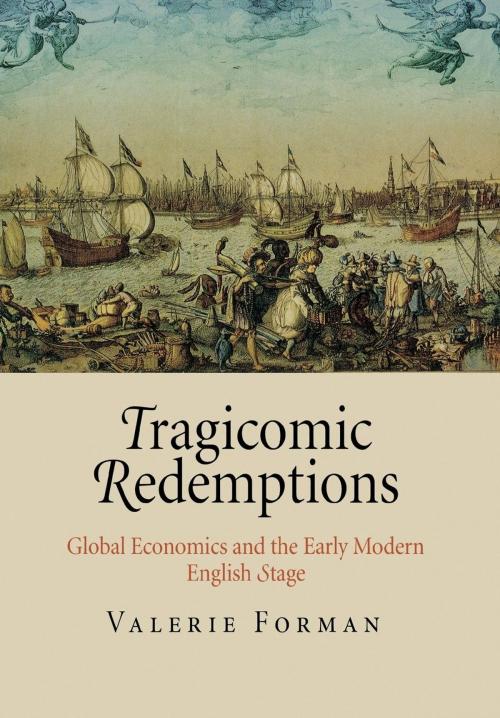Tragicomic Redemptions
Global Economics and the Early Modern English Stage
Fiction & Literature, Literary Theory & Criticism, British| Author: | Valerie Forman | ISBN: | 9780812201925 |
| Publisher: | University of Pennsylvania Press, Inc. | Publication: | March 26, 2013 |
| Imprint: | University of Pennsylvania Press | Language: | English |
| Author: | Valerie Forman |
| ISBN: | 9780812201925 |
| Publisher: | University of Pennsylvania Press, Inc. |
| Publication: | March 26, 2013 |
| Imprint: | University of Pennsylvania Press |
| Language: | English |
In the early modern period, England radically expanded its participation in an economy that itself was becoming increasingly global. Yet less than twenty years after the highly profitable English East India Company made its first voyage, England was suffering from an economic depression, blamed largely on the shortage of coin necessary to exploit those very same profitable routes. How could there be profit in the face of so much loss, and loss in the face of so much profit?
In Tragicomic Redemptions, Valerie Forman contends that three seemingly unrelated domains—the development of new economic theories and practices, especially those related to global trade; the discourses of Christian redemption; and the rise of tragicomedy as the stage's most popular genre—were together crucial to the formulation of a new and paradoxical way of thinking about loss and profit in relationship to one another.
Forman reads plays—including Shakespeare's Twelfth Night, The Merchant of Venice, Pericles, and The Winter's Tale, Fletcher's The Island Princess, Massinger's The Renegado, and Webster's The Devil's Law-Case—alongside a range of historical materials that provide a fuller picture of England's participation in a global economy: the writings of the country's earliest economic theorists, narrative accounts of merchants and captives in the Spice Islands and the Ottoman Empire, and documents that detail the development of the English East India Company, the Levant Company, and even the very idea of the joint-stock company. Unique in its dual focus on literary form and economic practices, Tragicomic Redemptions both shows how concepts fundamental to capitalism's existence, such as "free trade," and "investment," develop within a global context and reveals the exceptional place of dramatic form as a participant in the newly emerging, public discourse of economic theory.
In the early modern period, England radically expanded its participation in an economy that itself was becoming increasingly global. Yet less than twenty years after the highly profitable English East India Company made its first voyage, England was suffering from an economic depression, blamed largely on the shortage of coin necessary to exploit those very same profitable routes. How could there be profit in the face of so much loss, and loss in the face of so much profit?
In Tragicomic Redemptions, Valerie Forman contends that three seemingly unrelated domains—the development of new economic theories and practices, especially those related to global trade; the discourses of Christian redemption; and the rise of tragicomedy as the stage's most popular genre—were together crucial to the formulation of a new and paradoxical way of thinking about loss and profit in relationship to one another.
Forman reads plays—including Shakespeare's Twelfth Night, The Merchant of Venice, Pericles, and The Winter's Tale, Fletcher's The Island Princess, Massinger's The Renegado, and Webster's The Devil's Law-Case—alongside a range of historical materials that provide a fuller picture of England's participation in a global economy: the writings of the country's earliest economic theorists, narrative accounts of merchants and captives in the Spice Islands and the Ottoman Empire, and documents that detail the development of the English East India Company, the Levant Company, and even the very idea of the joint-stock company. Unique in its dual focus on literary form and economic practices, Tragicomic Redemptions both shows how concepts fundamental to capitalism's existence, such as "free trade," and "investment," develop within a global context and reveals the exceptional place of dramatic form as a participant in the newly emerging, public discourse of economic theory.















